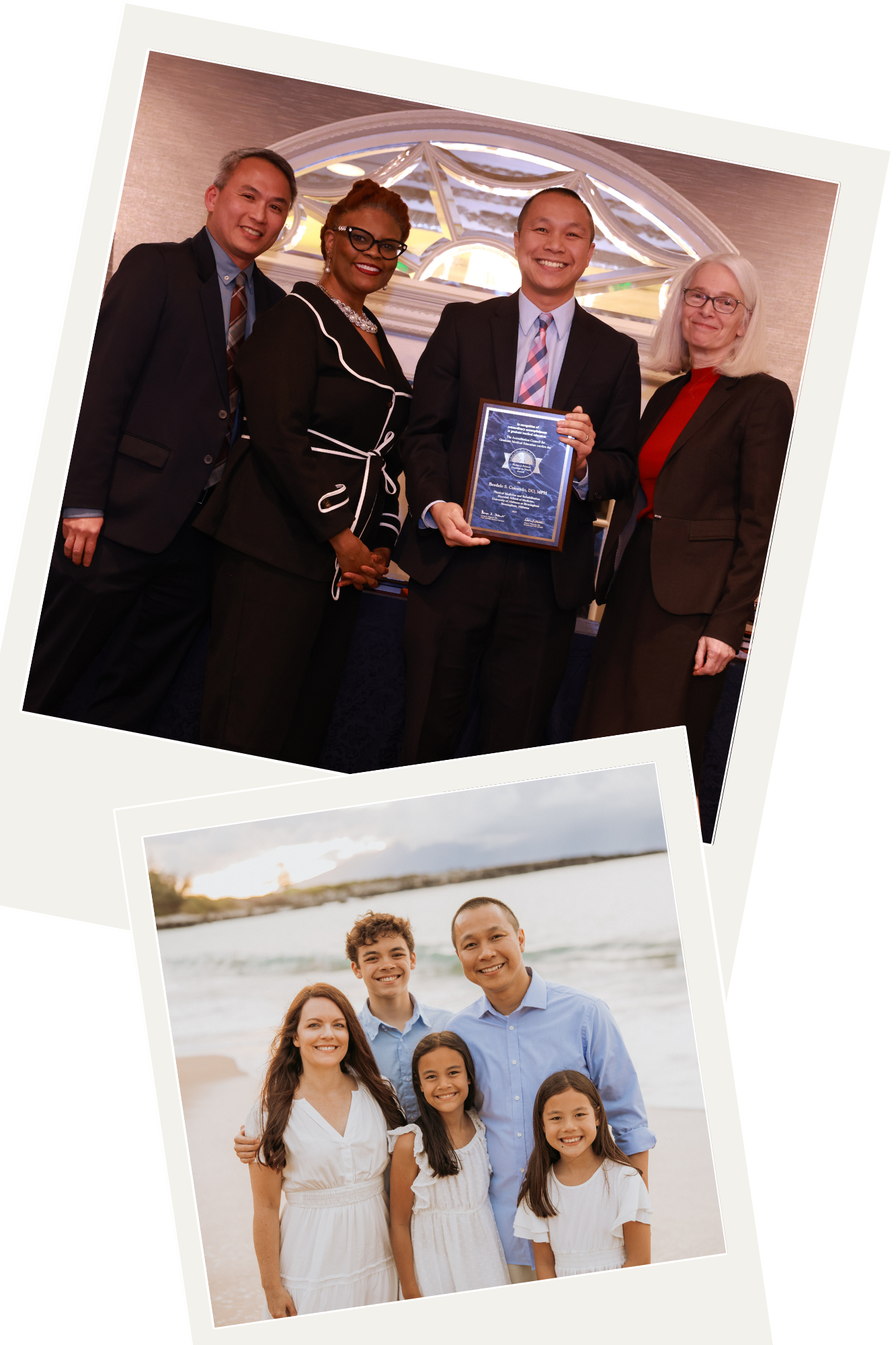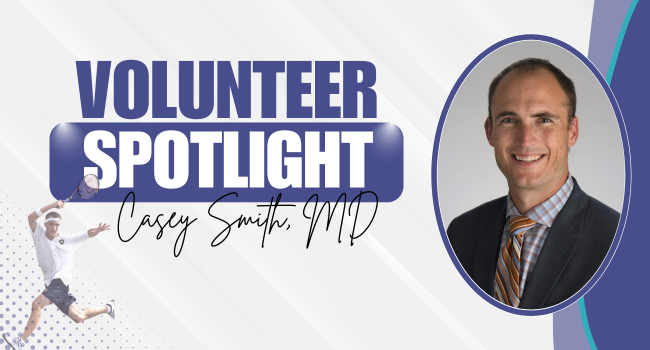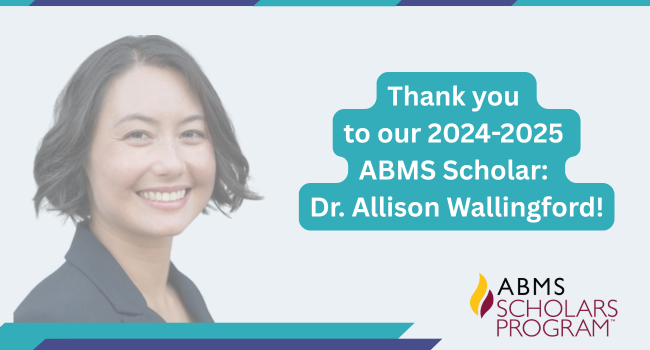Physician Features
Faces of Physiatry: Dr. Berdale S. Colorado

Congratulations to Dr. Berdale Colorado on receiving the Parker J. Palmer Courage to Teach award!
Berdale Colorado, DO, MPH, was born in the Philippines, moved to England when he was just two years old, and then a few years later his family relocated to Iowa. He is an Associate Professor and Vice Chair of Education in the Department of Physical Medicine and Rehabilitation (PM&R) at the University of Alabama at Birmingham (UAB). He is the PM&R Residency Program Director and Program Director for the Interventional Spine and Musculoskeletal Medicine Fellowship. He also serves as Chief of Sports and Musculoskeletal Medicine, Medical Director for Performing Arts Medicine, and serves as a team physician for UAB Athletics. He is the Assistant Dean for Student Experience at the Heersink School of Medicine. Previously, he held various roles at Washington University in St. Louis, including Associate Professor in Orthopedic Surgery and Neurology and Program Director for the Sports Medicine Fellowship.
Dr. Colorado is board certified in PM&R, sports medicine, brain injury medicine, electrodiagnostic medicine, and neuromuscular ultrasound. He is also certified in musculoskeletal ultrasound (RMSK). He earned his medical and public health degrees from Des Moines University and completed his residency at the Medical College of Wisconsin, where he served as Chief Resident. He completed his fellowship in sports medicine at Washington University in St. Louis. He is active in multiple professional organizations and has received multiple awards, including the AAPMR Early PM&R Career Award, the AAP Early Career Academician Award, and the NASS 20 under 40 Award.
How did you choose PM&R as a specialty?
It was not until the end of my first year of medical school that I learned about PM&R. I really liked the thorough neurological exam of neurology, the musculoskeletal exam and procedures of orthopedics, and the continuity of care and breadth of family medicine. PM&R seemed to encompass the best parts of the different specialties that I was interested in, and I was fascinated by the focus on function. I sought out rotations early on that would give me exposure to the many different aspects of PM&R and immediately fell in love with the field.
You were the recipient of the 2025 Parker J. Palmer Courage to Teach Award, what does this award mean to you?
The award recognizes 10 program directors from any residency or any fellowship across the country who have fostered innovation and improvement in their residency programs and served as exemplary role models for residents. I was nominated by my department chair, and it was definitely a surprise. I was even more surprised when I found out I was the first physiatrist to win the award in the past eight years. I'm truly honored. I’m in academics because I was inspired by incredible mentors who showed me the tremendous impact that can be made through teaching/education, research, leadership, and mentorship, and I just want to “pay it forward”. I'm so thankful to work in such a supportive environment and with such a great group of faculty, staff, and trainees.
One of the added benefits of the award is the ACGME Awardees retreat that is offered to award recipients and is scheduled for May. This retreat provides space and time for awardees to reflect and reconnect with their purpose and their compassion. I look forward to learning from the other award recipients and explore ways I can continue to grow and improve.
You were nominated in part because of your contributions to the musculoskeletal curriculum, can you tell us about that?
One of the main things that I wanted to accomplish when I first got to UAB was to develop and expand the musculoskeletal medicine curriculum. I created a musculoskeletal ultrasound course, started simulation-based EMG case conferences and critical thinking sessions, organized a new MSK Journal Club, provided new sports/event coverage opportunities, expanded MSK research opportunities, and revamped all of the existing sports, pain, EMG, and MSK rotations and didactics. We also created a new MSK rotation for senior residents. The residents were really excited about all the changes, but we wouldn't have been able to accomplish that if we didn't have the buy in from department leadership and faculty. We are also excited about the creation of a new interventional spine and musculoskeletal medicine fellowship that will welcome its first fellow this summer. This type of fellowship will improve MSK education for residents since they will have access to many of the educational components of the fellowship.
Do you have any advice for residents or early career physicians?
You don’t have to choose just one thing in PM&R. Do all the things that you enjoy doing. This is a field where you can do so many different things, and the expertise that we have is applicable to many different areas. Find the things you are passionate about and look for synergy opportunities. For example, my interests in electrodiagnostics and MSK ultrasound led to research on nerve ultrasound. My interests in sports medicine and disability advocacy led to an interest in adaptive sports.
Seize opportunities. One of my mentors once said, ‘if you have an opportunity to sit at a table where you can make a difference, you have to take it.’ You certainly don’t want to spread yourself too thin, but at the same time when you have an opportunity to advance our field, those are some of the most rewarding and meaningful experiences.
What are some things you enjoy doing outside of work?
Spending time with my wife and three children. They are in a lot of extracurricular activities, so I am their chauffeur and try to be their biggest cheerleader. We also like to try new restaurants in the Birmingham area and spend time at the beach in Gulf Shores. We would love to take a trip back to the Philippines or England in the coming years.




